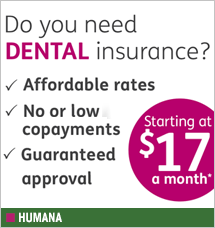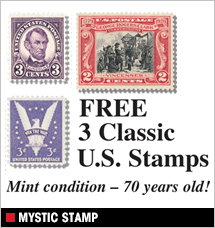Dollar Sense
What You Need to Know to Minimize Your Estate Taxes in 2014

If estate planning is part of your world – and for most people it should be – you probably know that the limits change every so often. It’s a political hot potato. In Congress there is little agreement on how to tax income after you die, or whether it’s right to tax it a second time at all. That division has kept taxpayers guessing for years what the fate of their heirs would be.
The Newest Limits
For 2014, the federal estate tax rate is 40%, same as 2013. Some states also have inheritance tax of their own. The federal gift tax exemption -- which is the amount you can shield from estate taxes – has remained fairly generous in spite of efforts to slash it. For those who pass away in 2014 the exemption is equal to $5.34 million (up from $5.25 in 2013) and is indexed to inflation.
A married couple can pass double the exemption, or $10.68 million to their heirs without incurring federal estate tax penalties. However, the surviving spouse must file Form 706, even if the estate is not taxable, in order to preserve the exemption.
You may be thinking your estate is nowhere close to the taxable level. But many people are unpleasantly surprised to find this isn’t true, especially if one of your assets is a business interest.
What Is Included in My Estate?
The IRS says your gross estate consists of “the value of all property in which you had an interest at the time of death.” Your home, other real estate, retirement accounts, stocks and bonds and other investments, automobiles, clothing, furniture, businesses, life insurance proceeds that will be paid to your heirs or your estate, even certain property that you transfer within three years prior to your death, is all part of your estate.
There are deductions, such as funeral expenses and debts. And a spouse could inherit his/her late spouse’s entire estate without incurring any federal estate tax.
How Can You Minimize Your Estate and Trust Tax?
Here are a few important points:
- A big part of planning to minimize your estate tax is gifting. In 2014 you can give up to $14,000 per year to as many individuals as you like, without incurring a gift tax. If you are married and your spouse agrees, together you can give $28,000 per recipient. If you have significant expendable income this is a good way to reduce your estate tax, especially if you intend to give the recipients that money at the time of your death anyway.
Apart from the $14,000 per year, per recipient gift amount that escapes taxes, there is also a lifetime gift, exemption, and is the same as the estate tax exemption of $5.34 million. The federal gift tax also matches the federal estate tax, at 35%. If you expect to push that limit, be sure you do so with the advice of a trusted financial adviser.
- Of course you can still make unlimited charitable gifts, which reduce your taxable estate.
- You can also pay tuition and/or medical expenses for others without triggering tax for you or them, as long as you pay the money directly to the schools or medical facilities.
Shield the Proceeds of Your Life Insurance
If you have life insurance policies, the proceeds are included in your taxable estate, unless you take steps to shield that money. You can do this by creating an “Irrevocable Life Insurance Trust.” That way, the beneficiaries of your policies don’t end up with a much-reduced cash amount. You can make an annual gift to the trust which your trustee will use to pay the policy premiums. After you pass away, the trust receives the proceeds and the trustee distributes the funds according to the terms of the trust.
Caution
Your estate plan has to be maintained with balance. The use of irrevocable trusts are good for minimizing estate tax, but this also means you forfeit control of the assets in the trust. Make sure that forfeiting that control doesn’t hinder your lifestyle in coming years.
Also, before you distribute property, talk this move over with your trusted accountant or financial adviser. The basis of assets – which affects the ultimate tax due – differs depending on whether assets are transferred while you are alive or at the time of your death. Those who receive property while you are alive could end up paying significantly more capital gains tax than they would if the gift was made as part of your will.
Don’t let your intentions go awry by making gifts that trigger unexpected tax consequences. Consult with your adviser about the best timing to distribute assets which you expect to appreciate in value.
Don’t Let Your Estate Plan Collect Dust
Once you have made your estate plan, it’s probably tempting to set it aside and breathe easy with that unsavory task done. But resist the urge to leave it alone too long. You need to review your plan as times change.
Here are just a few of the important questions to ask yourself on a regular basis.
- Have you made provision to pay any estate taxes which may be due? If not, your heirs may end up selling the property you wanted them to have (home, business, real estate, artwork, jewelry) just to pay the taxes.
- Ask your financial adviser about insurance to help your heirs pay the taxes that will be due. Proper structuring can make sure the proceeds of your insurance policy are exempt from income and estate tax.
- Are you still comfortable with your choice of executors and trustees?
- Does your will still reflect your true wishes for the distribution of your assets? That is, have individuals like grandchildren been added to the family but not to your will?
- As estate tax laws change, is your estate plan updated to reflect those changes?
- If your estate includes a family business which your heirs will inherit, have you started transferring interests in the business through a gifting program?
- Have you established a succession plan for your business and if so, is your family aware of the plan?
- Are your estate planning documents organized and do your heirs know where to find them after you pass away?
Teresa Ambord is a former accountant and Enrolled Agent with the IRS. Now she writes full time from her home, mostly for business, and about family when the inspiration strikes.



























































